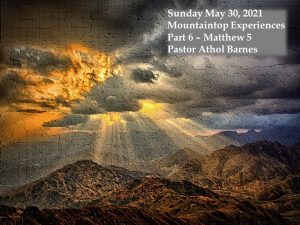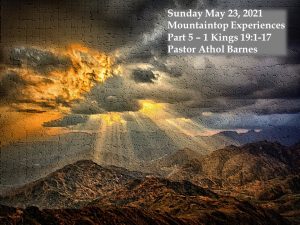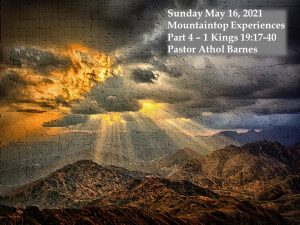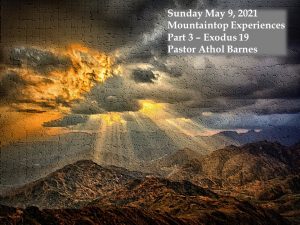
In Matthew 5,6 and 7, we have the record of the greatest sermon ever preached, as Jesus taught his disciples in what is known as the sermon on the mount.
Jesus was introducing and teaching the ways of the kingdom that he wants to form in the lives of his followers. At first glance, it seemed that Jesus was giving a new law, one that seemed different to the Law of Moses given at Sinai to the nation of Israel. But, as we read these chapters, we see that Jesus is calling his followers to a radical lifestyle. As followers of Jesus, we are called to live very differently to the world around us. The words of Jesus are a call to selflessness, holiness, and a call to be set apart from the world.
Every sentence in the sermon on the mount declares a separation between living as a Christian and living as an unbeliever. As Jesus addresses every aspect of social, spiritual, and personal relationships, he is setting the bar extremely high. As followers of Jesus, we are to live differently, to speak differently, and to think differently to those who do not know Jesus as Lord.
Sadly, there are many in the church and even many churches, that look no different than the world. Churches are filled with hypocrisy, gossip, sexual immorality, greed, and fear of man. Doesn’t sound like the church of Jesus, does it?
There is often talk about nominal Christians and nominal churches. What does that even mean?
Nowhere in the Bible do we ever find reference to nominal Christianity. To be a Christian is to be all in! To be dead to our old way of life and alive to God, filled with His spirit. There is no neutral ground, you are either radically living for Jesus or you are not.
Sadly, many people today are like the person who buys a Mahomes shirt, watches every game on TV and then thinks he is part of the Chiefs team. You are not saved by going to church or trying to live a good life. Only those who have been raised to new life by the Spirit of God have been saved. Jesus spoke about this very directly in the sermon on the mount in Matthew 7:21-23.
So how do we live this radical life in a world that continues to get more and more sinful? Jesus knew it would be difficult and that is why he prayed for his disciples right before he went to the cross (read John 17:15-17).
Jesus asked his Father to sanctify his followers, that we might be daily transformed in our thoughts and actions. Jesus said this sanctifying process is done by the truth of the word of God. If you do not have a desire to read and meditate on the word of God, there is a very real possibility that it is because you have no relationship with Jesus.
The Word that Jesus is speaking about and the Law he is referring to is what we know as the Old Testament.
There is a theory in some Christian circles teaching that Jesus came to do away with the Old Testament and that the Law no longer applies to us today. They argue that we are under grace and therefore we are not subject to the punishment of God. But in verse 17 and 18 of Matthew 5 we read, “Do not think that I have come to abolish the Law or the Prophets; I have not come to abolish them but to fulfill them. 18 For truly, I say to you, until heaven and earth pass away, not an iota, not a dot, will pass from the Law until all is accomplished.”
If you read the first five books of the Old Testament, you will see that there are a lot of laws that honestly seem quite strange and frankly impossible for us to observe in our culture.
The law that Moses received on Mount Sinai, that was given as the constitution of the nation of Israel consists of three parts.
- The moral laws: The Ten Commandments and the moral principles given for all mankind for all history.
- The judicial laws: Given as the legislative guide to the nation of Israel for their governance.
- The ceremonial law: The instructions regarding the offerings and sacrifices.
Jesus said that he came to fulfill the law or complete the law. If we look at the ceremonial law, we see that it all points to Jesus as the perfect sacrificial lamb, slain for the sins of the world. When Jesus died on the cross for our sins, he fulfilled the prophetic law, the law pointing to the messiah. In Matthew 5:17-18, Jesus confirms the authority and his seal of approval on the collection of books that we call the Old Testament.
Jesus didn’t abolish the moral law. Jesus went on to say that not one smallest part of the law will be abolished until it is all completed. The Moral law is the permanent and perpetual way in which we relate to God and the way we relate to each other.
The Old Testament is a rich mine with untold treasures. And the gold nuggets to look for are the ones that point to Jesus, the second person of the trinity, the Word of God. If you look carefully with the help of the Holy Spirit, you will see Jesus written all over the pages of the Old Testament.
If we cannot be saved by keeping a set of rules, why is the moral law of Moses still relevant?
The Law was never intended to save man because we could never keep the Law perfectly. Rather the law was given to us to show us the true character and holiness of God, to show how far short of the glory of God we fall, to show us how desperately we need a savior. The law of God was given to bring us to our savior, Jesus Christ.
And when we come to Jesus in complete dependence on his lordship over our lives, we receive the gift of the Holy Spirit that enables us to walk in holiness as we daily are being made new.
Do you know this Jesus?





